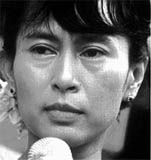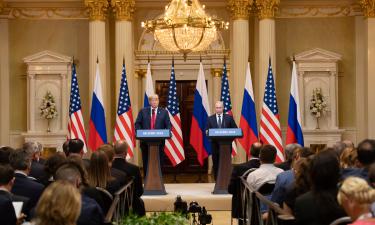Myanmar: U.N. rights expert calls to release pro-democracy leader

The release of Suu Kyi and more than 1,000 other political prisoners being held by Myanmar's ruling military junta is necessary if the country is to embark on a transition toward democracy, said Paulo Sergio Pinheiro, the United Nations' special investigator for Myanmar.
Suu Kyi, head of the opposition National League for Democracy, has been held, mostly under house arrest, for about 10 of the last 17 years. Her current sentence is set to end Saturday.
Myanmar officials have not indicated whether Suu Kyi's term will be extended. She is in virtual solitary confinement at her residence in Yangon, and has been allowed no outside visitors except occasional checks by her personal physician, the AP reports.
Last week, however, she was allowed to meet U.N. Undersecretary-General Ibrahim Gambari for her first meeting with a senior U.N. official in two years.
Gambari called it a sign of a changed attitude from the ruling military junta, which he said appeared ready to "turn a new page" and engage the international community after years of hostility.
Myanmar's military junta took power in 1988 after crushing a pro-democracy movement. In 1990, it refused to hand over power when detained pro-democracy leader Aung San Suu Kyi's political party won a landslide victory in general elections.
On Wednesday, lawmakers from six of the Association of Southeast Asian Nations' 10 members urged Myanmar to release Suu Kyi. The United States also has said it is ready to improve relations with the junta if it moves toward releasing Suu Kyi and other political prisoners, the AP reports.
Subscribe to Pravda.Ru Telegram channel, Facebook, RSS!





